“Welcome to the MAHA Revolution,” a man’s voice echoed across the 9th floor of Ned’s Club on Monday evening July 21, just as the sun began to dip behind the US Treasury Building. Cocktail chatter stopped.
Influencers took one last iPhone shot of the golden-hour view of the Washington, DC skyline—then slid their phones into their clutches.
Thanks for reading The MAHA Report! Subscribe for free to receive new posts and support my work.
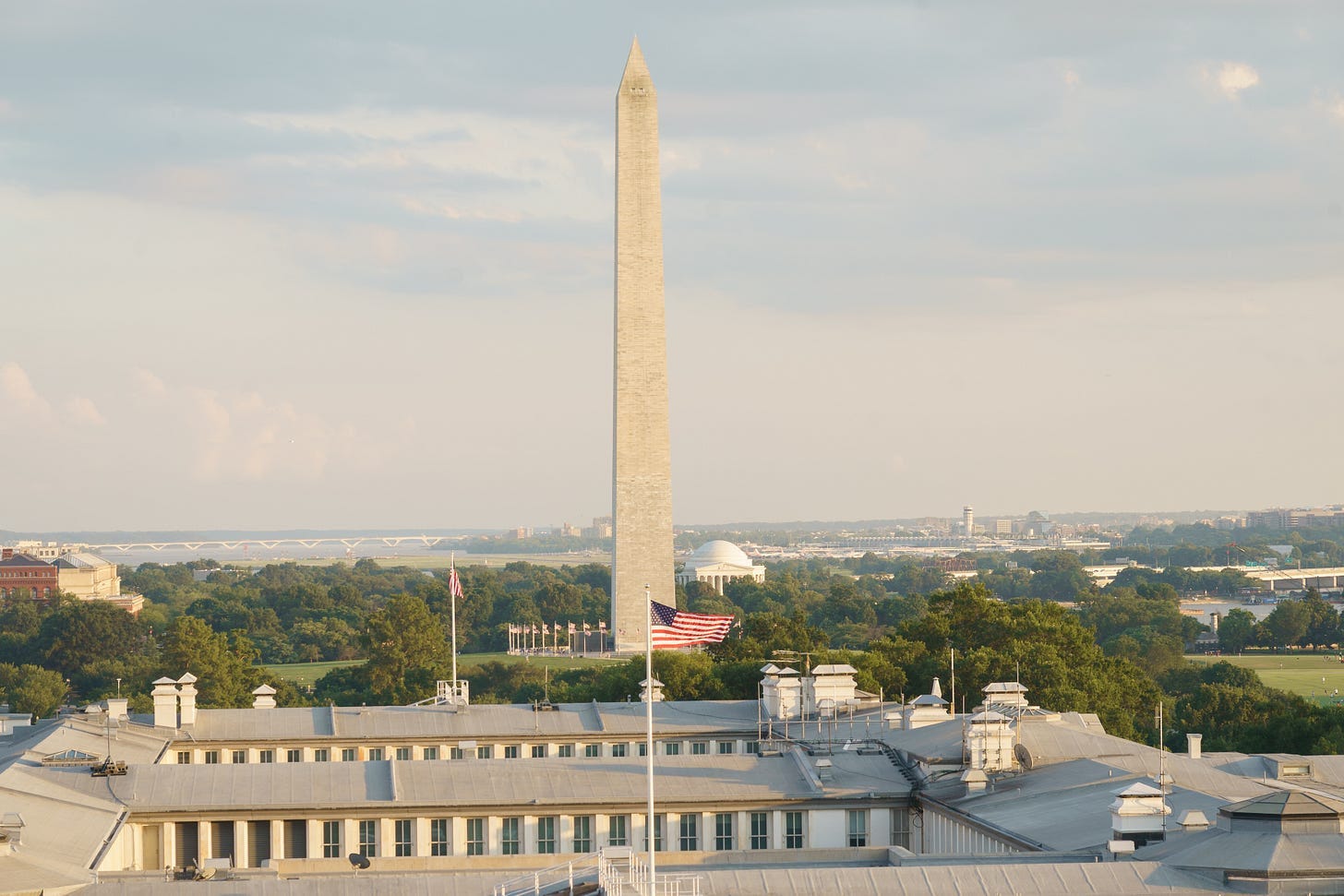
The crowd—an elite swirl of think tank darlings, grassroots activists, clean living crusaders, and glamorously disillusioned politicos—turned toward the front of the scarlet-walled room, where the evening’s emcee stood.
“We’re in a time of existential crisis,” the speaker continued. “The system is broken. Chronic disease is running rampant, and there’s an epidemic no major newspaper in this country will write about.”
Most in the room recognized the voice. It was Tony Lyons—president of Skyhorse Publishing, the book world’s most defiant disruptor, often called the “publisher of the unpublishable,” for allowing bestselling exposés like The Real Anthony Fauci to be part of public discourse.
But Monday night, Lyons introduced himself as something different—the new president of MAHA Action, a nonprofit created to challenge media attacks on HHS Secretary Robert F. Kennedy Jr. and spotlight the public health agenda unfolding under the new administration.
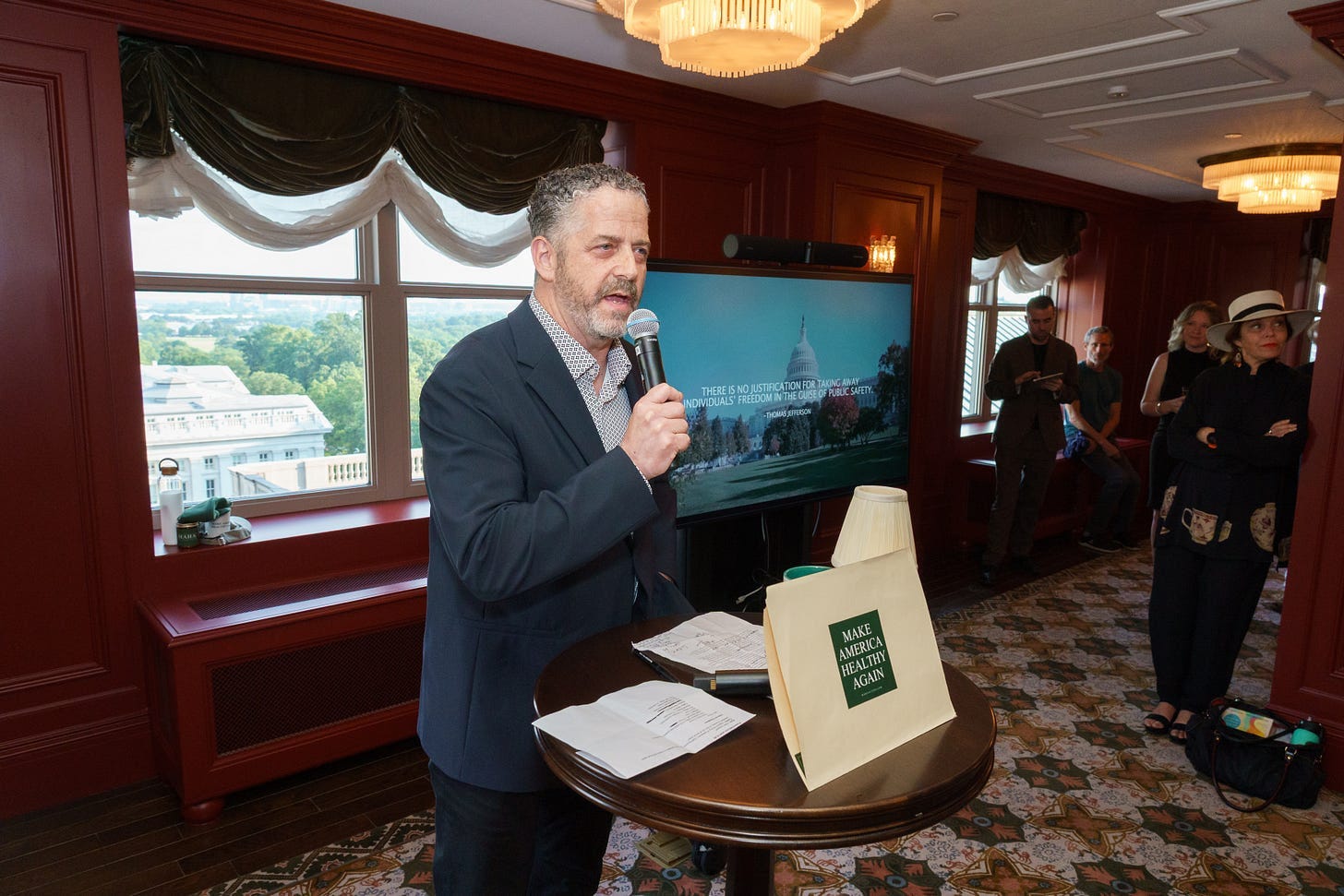
Lyons’ opening speech was fired up by a Bloomberg op-ed he’d read just days earlier—written by Michael Bloomberg himself. In the piece, the billionaire media mogul warned his readers of “the real crisis happening in this country,” pointing fingers at Donald Trump, Robert F. Kennedy Jr., and Dr. Mehmet Oz, accusing them of dragging America “to hell.”
“The best thing we can do,” Lyons told the crowd, quoting Bloomberg, “is get rid of these three people… “ He paused, “And I think we all here know that isn’t true.”
One-third of Bloomberg’s so-called threat to democracy—Dr. Mehmet Oz— stood in the crowd. Now serving as the 17th administrator of the Centers for Medicare & Medicaid Services, Oz had arrived at the private members-only club with his wife Lisa to support MAHA Action’s new mission: to spotlight the real public health reforms happening at HHS—updates Lyons’ believes legacy outlets like Bloomberg deliberately ignore.
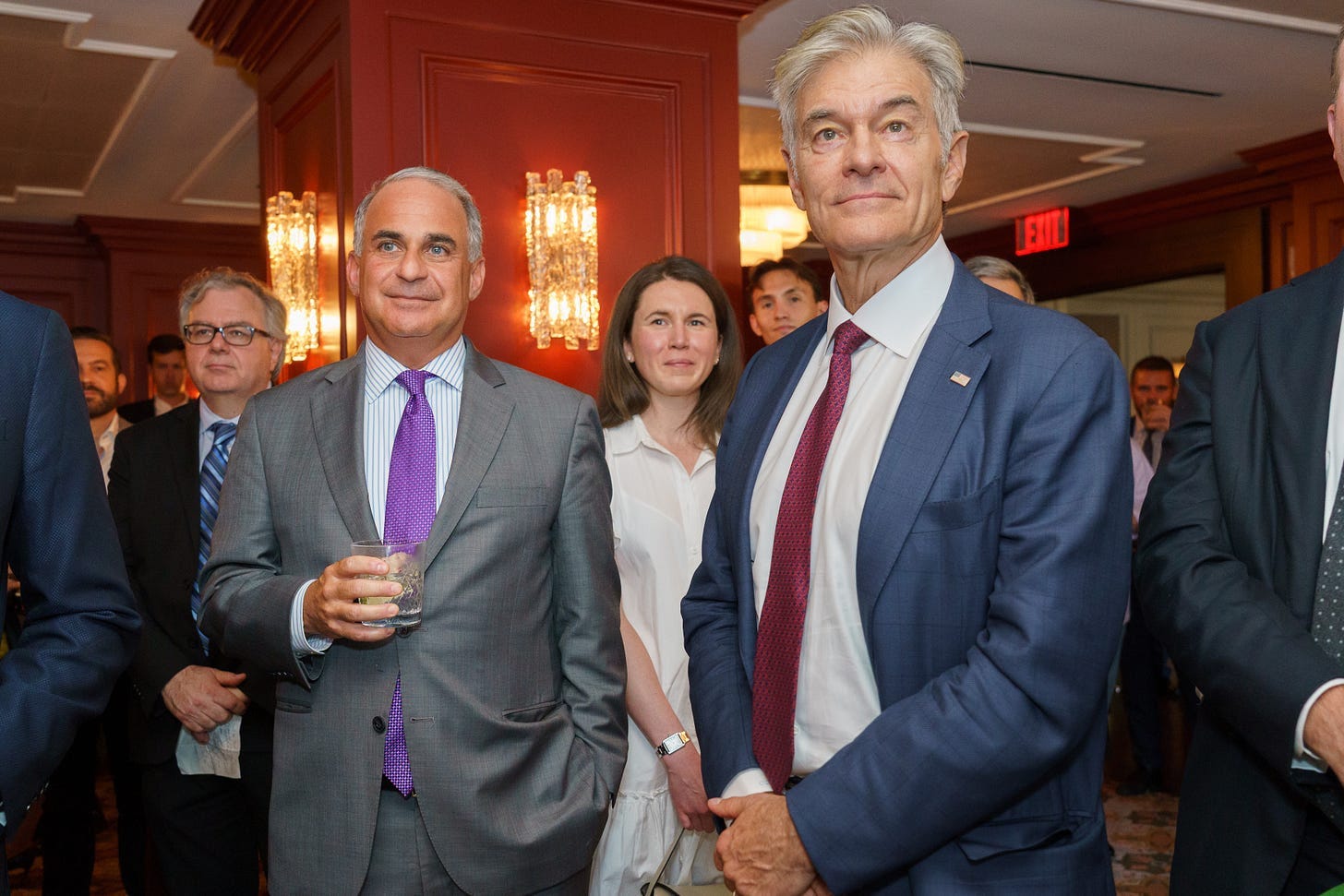
“Anytime you’re talking about the mainstream media,” a man in a MAHA hat whispered to his friend, “make sure you call it Pharma-funded media. If enough people start saying it, Americans will finally get what’s happening.”
The message was already spreading amongst the crowd.
Leigh Merinoff, owner of Meadows Bee Farm—an educational biodynamic farm in southern Vermont—was a co-sponsor of the event and joined Lyons on stage in sleek black pumps to welcome the crowd.
As she began speaking, a young woman with a sparkly iPhone case pushed her way to the front row, apologizing as she accidentally elbowed through. “I’m a big fan of Merinoff’s,” she announced, beaming.
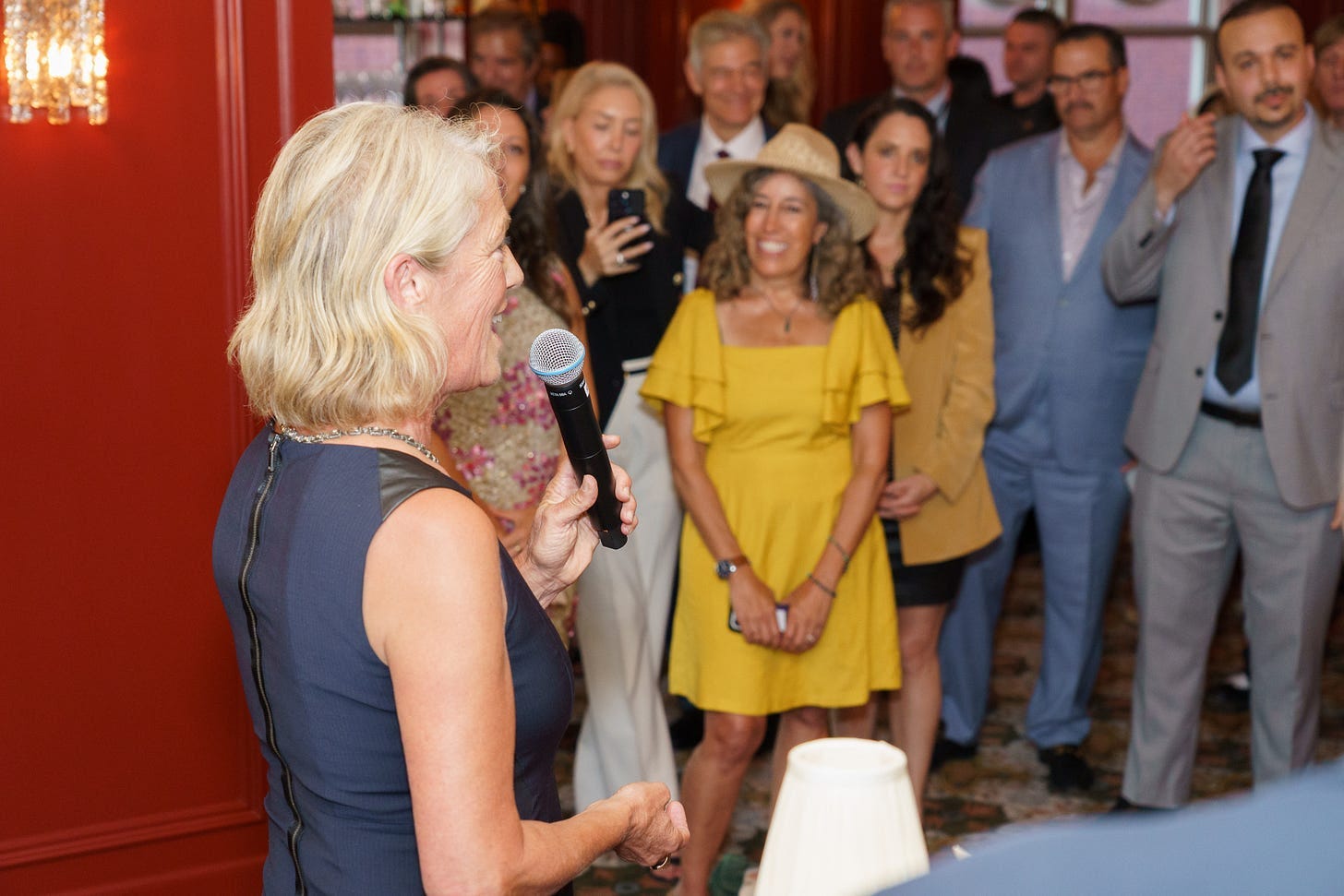
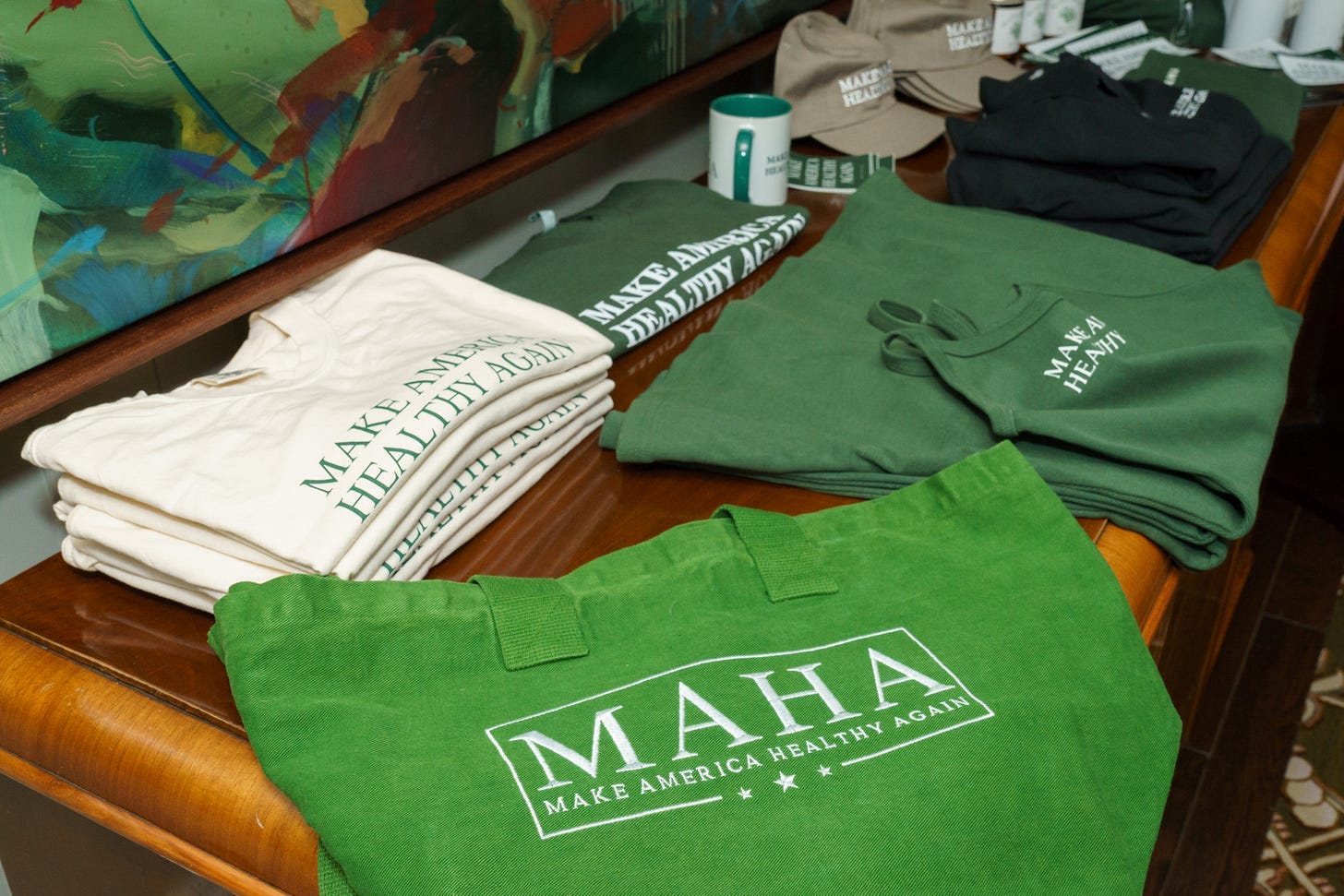
More guests trickled in the door, greeted by champagne coupes, truffle-drenched hors d’oeuvres, and a curated table of MAHA swag: tote bags, tennis dresses and baseball caps.
A woman rifling to find her appropriate dress size whispered that she’d just seen British comedian/actor Russell Brand in the lobby.
“I just saw Russell Brand in the lobby,” she said breathlessly.
“With a crew…a crew of missionaries.”
Moments later, Brand appeared—hair wild, eyes lit up—wearing a black blazer over a Hawaiian shirt emblazoned with the Virgin Mary. He was joined by his “crew:” one of his producers and Hungarian missionary, Joshua Bramer, who teaches Christianity at a small school in Tóalmás, a tiny village outside of Budapest. This was Bramer’s first MAHA event.
Russel Brand, one of the event’s scheduled speakers, glided toward the stage and launched into a reflective monologue.
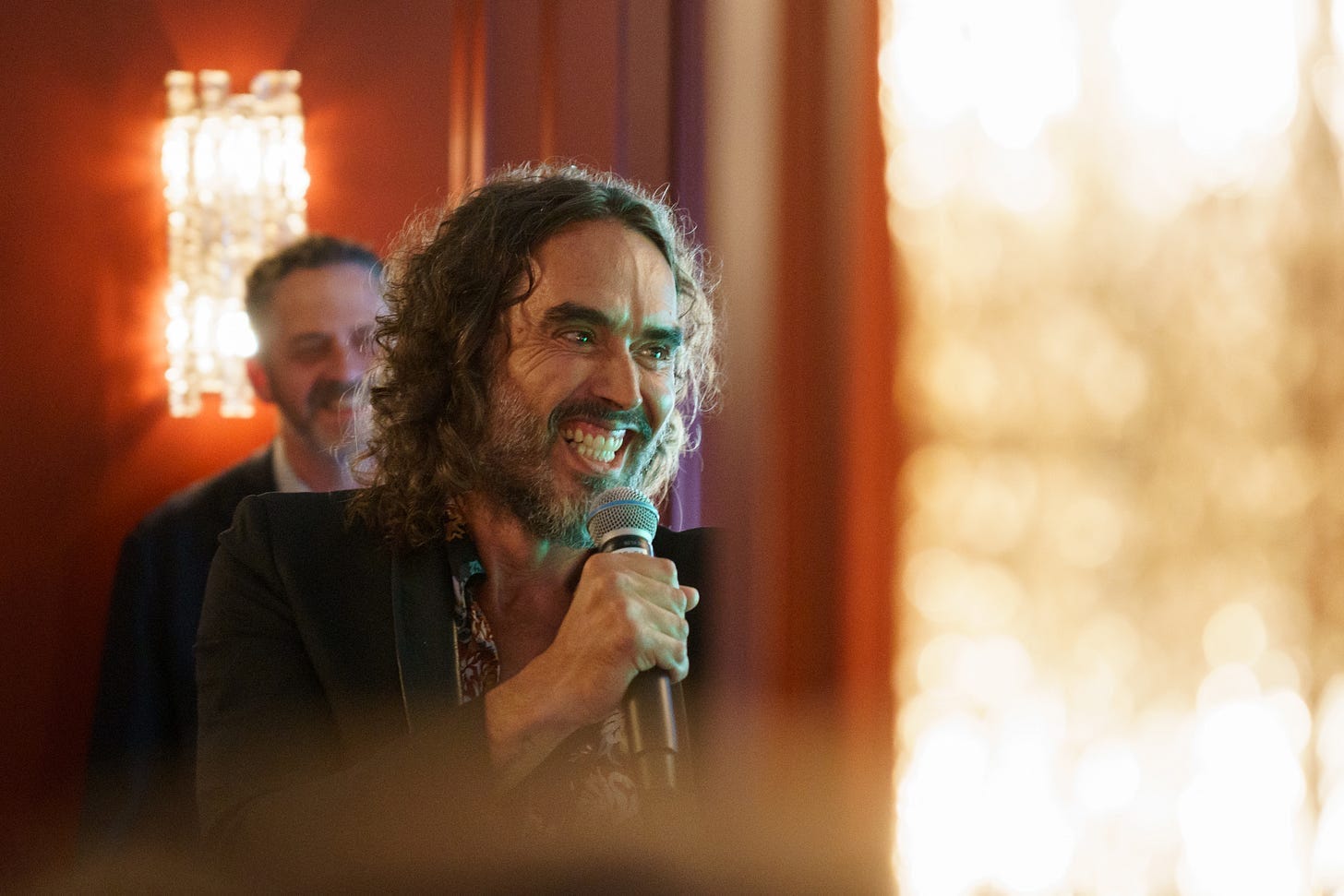
“Across all eternity,” he began, “there is nothing but empty space. Dark energy. Nihilism. No meaning,” he said, pacing the room in circles.
“But here, we have an opportunity to create and generate meaning together and for meaning to be generated it means that meaning must actually be real…”
For the first few minutes, guests weren’t sure if they were at a political cocktail hour or a slam poetry séance. The British comedian’s existential sermon, delivered in his signature stream-of-consciousness style, finally veered into the MAHA gospel: salvation through Bobby Kennedy—the medical messiah he believes can heal the world.
“It’s extraordinary that someone could move so far from the periphery and the margins to the very center,” Brand said of Kennedy’s rise to HHS Secretary.
“And an indication that your country is indeed still great… perhaps, the greatest country on Earth,” he added. The room erupted in applause.
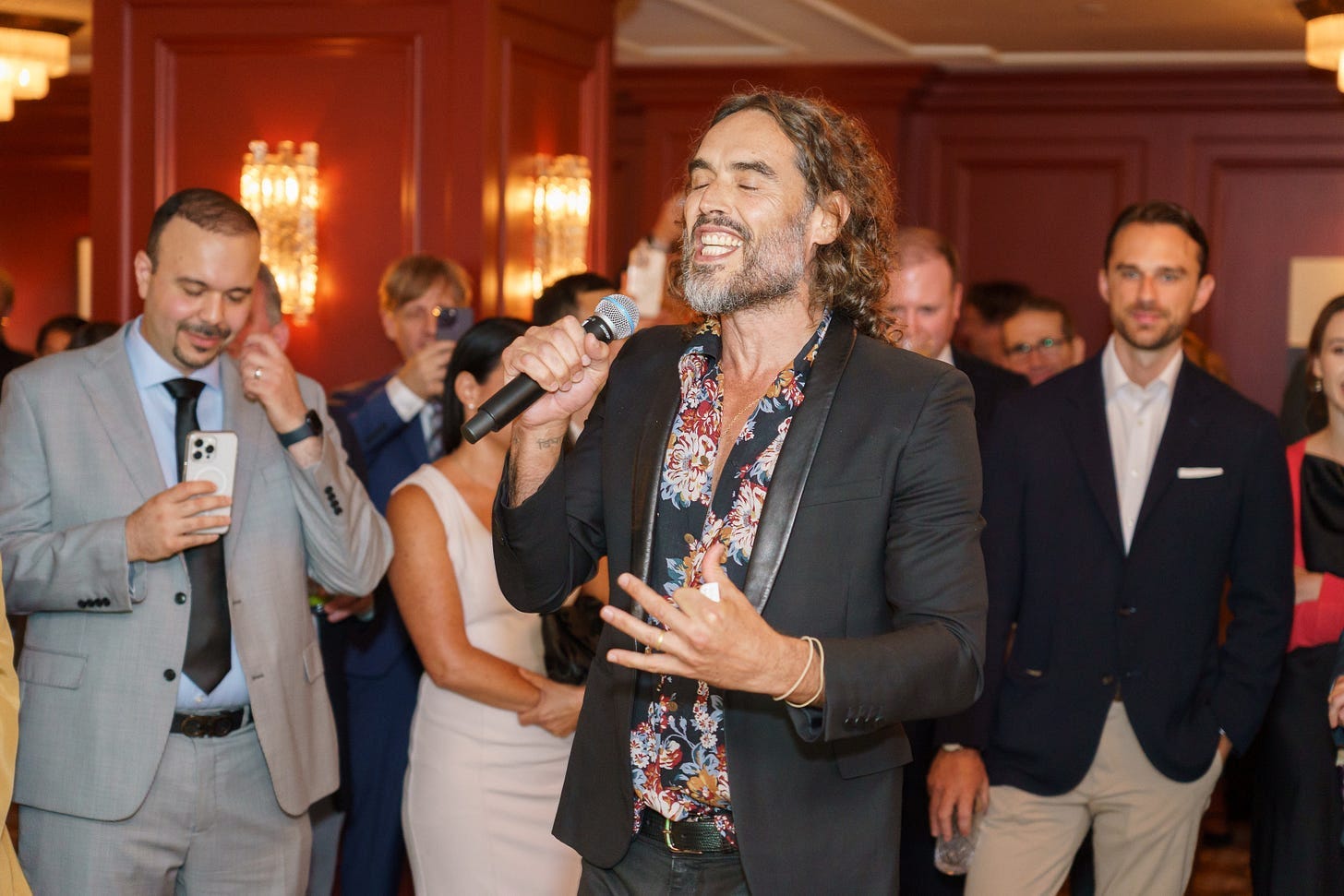
“If you’re not willing to die for it, then maybe you shouldn’t even be participating in it,” Brand said somberly into the mic. “And I get the sense that in the office now…” He trailed off, then pivoted into a prayer to his Heavenly Father—that death never follows any politicians fighting for medical freedom.
“The MAHA movement is a spiritual movement,” Brand told the crowd.
“That’s right!” shouted Angela Stanton-King from the side of the stage.
A former advisor to Robert F. Kennedy Jr. on Black voter engagement, Stanton-King carried that same enthusiasm to Instagram: “MAHA Action is back and stronger than ever. The movement just got a whole lot louder,” she wrote.
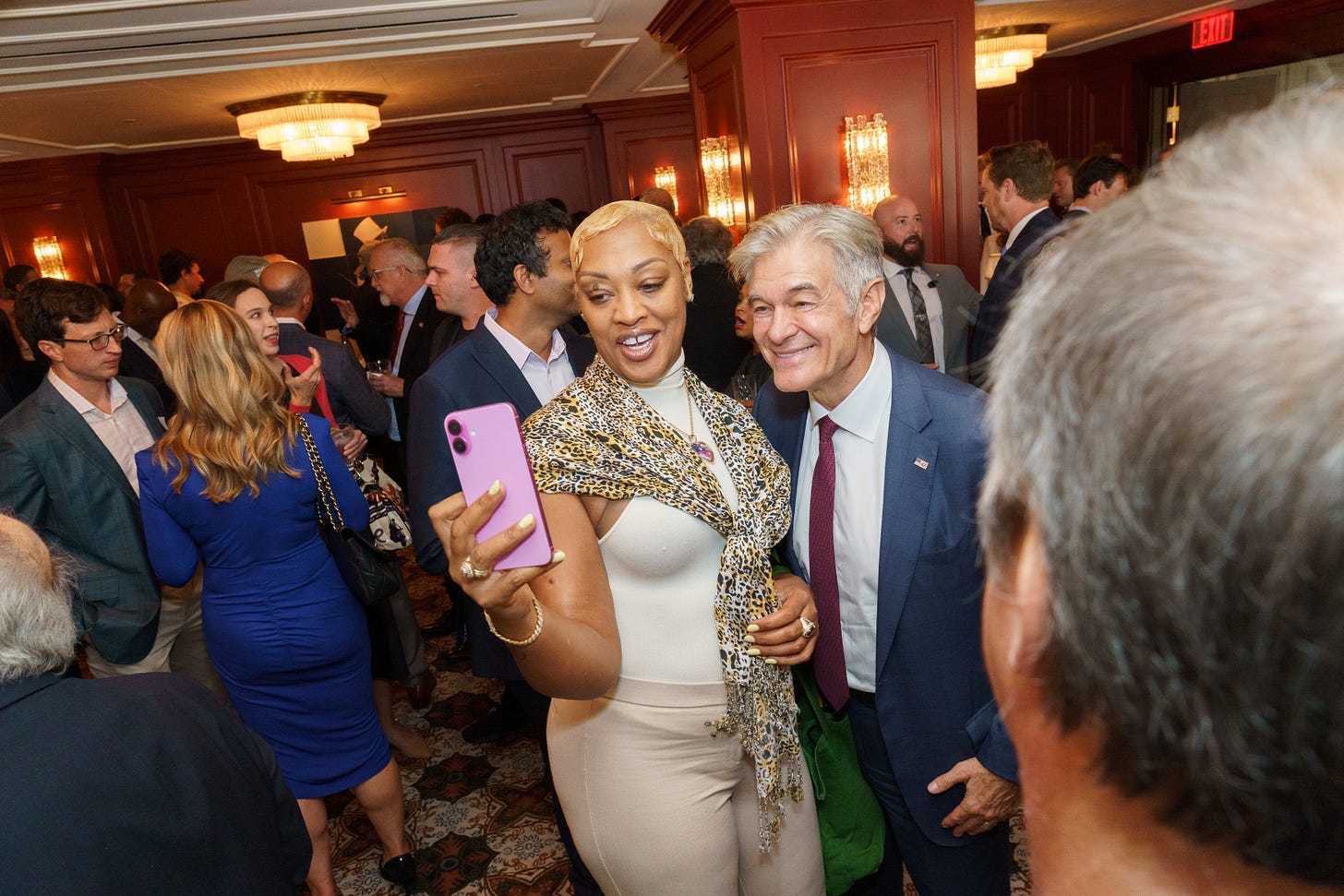
Brand suddenly began screaming into the mic to introduce the next speaker, HHS Advisor Calley Means—describing him as a former Coca-Cola employee who’s “okay to love” and “sweet as sugar.”
“Tony, don’t let me follow Russell ever again. Not fair,” Means joked, before launching into his own testimony.
“We have done more in 150 days than any HHS has done,” Means proudly declared.
But the MAHA movement’s greatest accomplishment, he said, isn’t coming from policy—it is coming from the people, in something he described as a “consumer awakening.” Because of MAHA, Americans are starting to ask their doctors more questions, reading food labels, and teaching their kids to think critically about what they put in their bodies.”
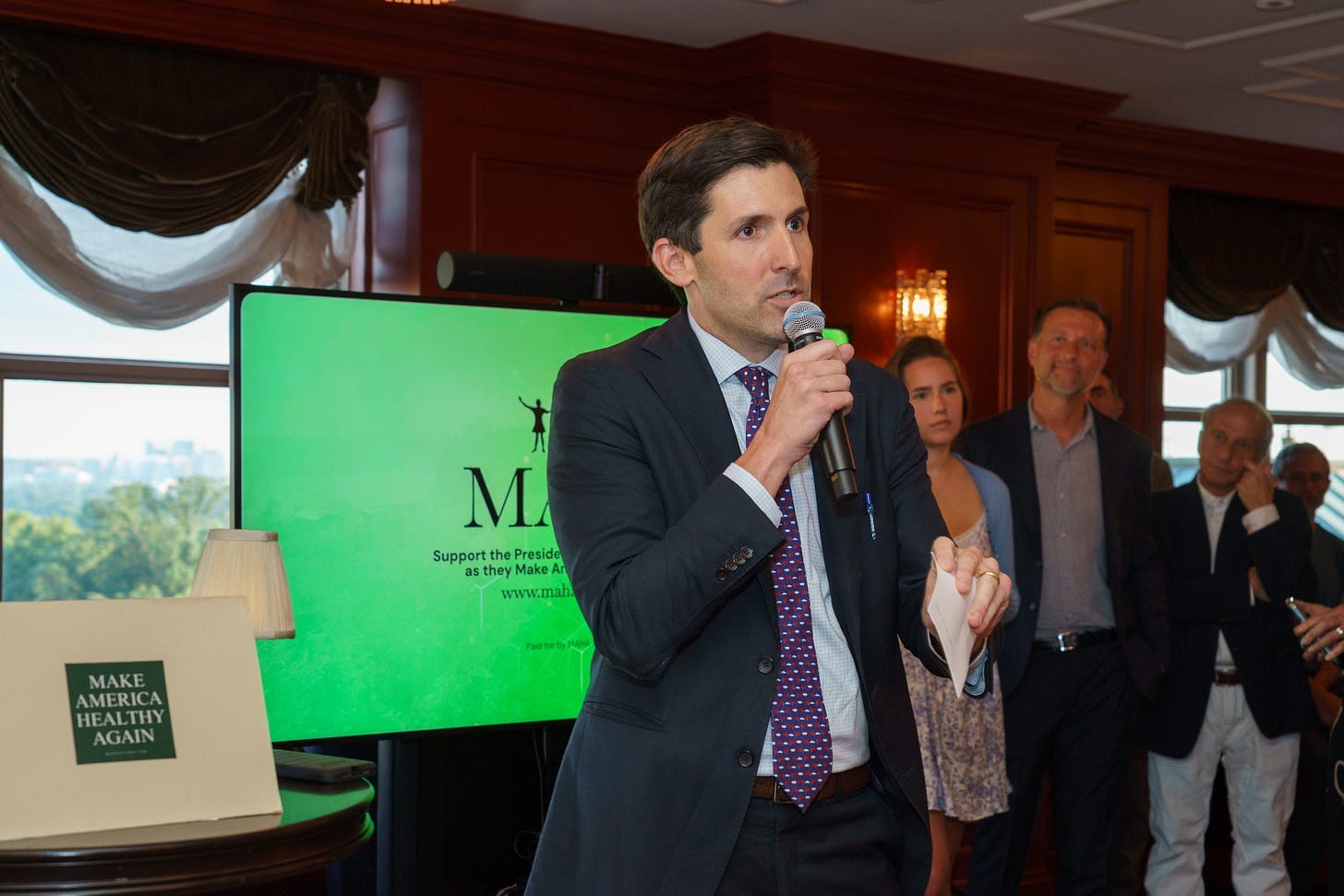
Dr. Eric Berg, also known as “The Knowledge Doc,” and Moms Across America’s Zen Honeycutt, took the mic to talk nutrition. Berg spoke about healthy food options and reminded the crowd how far we've come since what he called a “scary time” in history—when Americans were told to blindly “trust the science.”
Honeycutt followed with remarks on glyphosate bans, school lunch reform, and her growing excitement for the future of MAHA.
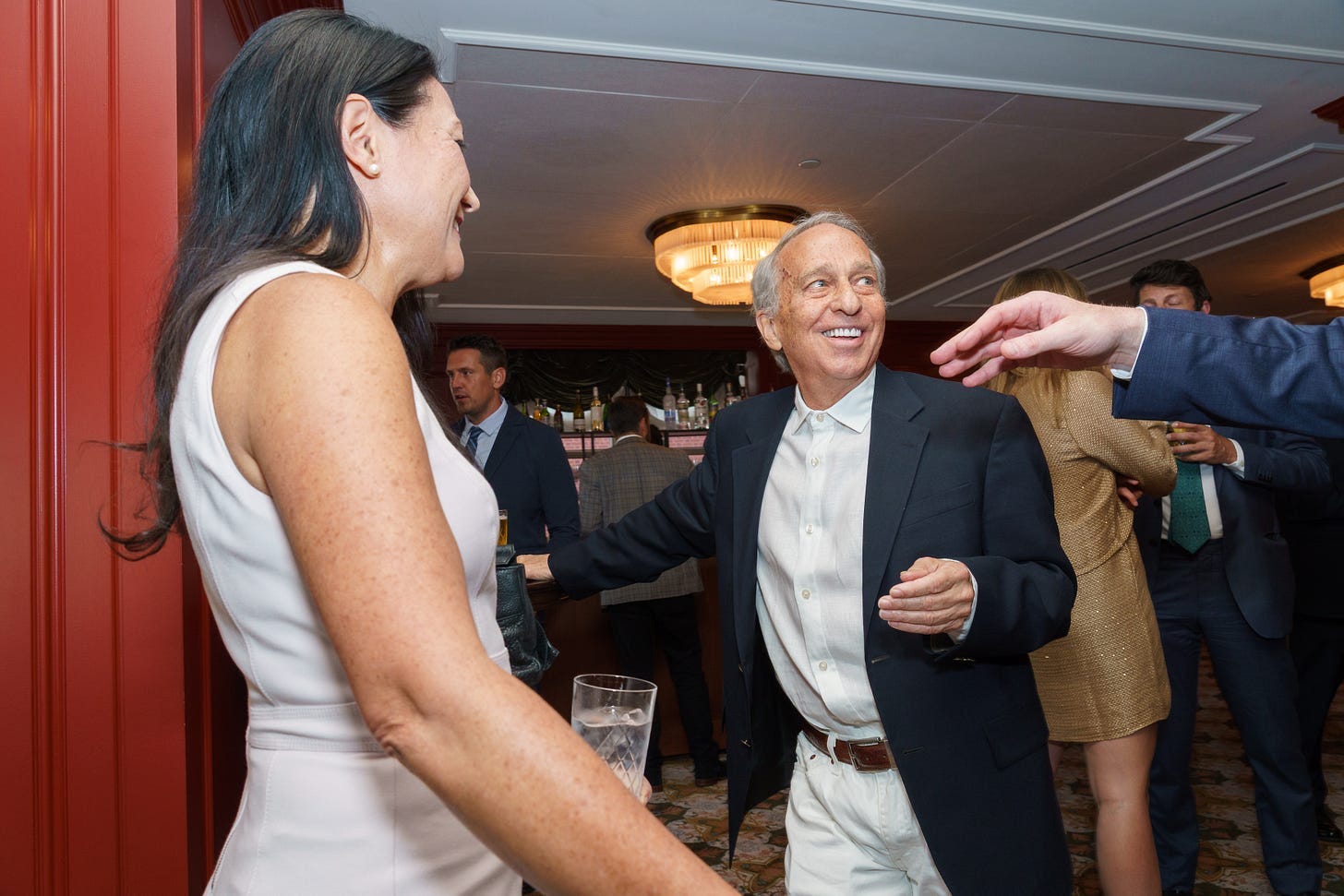
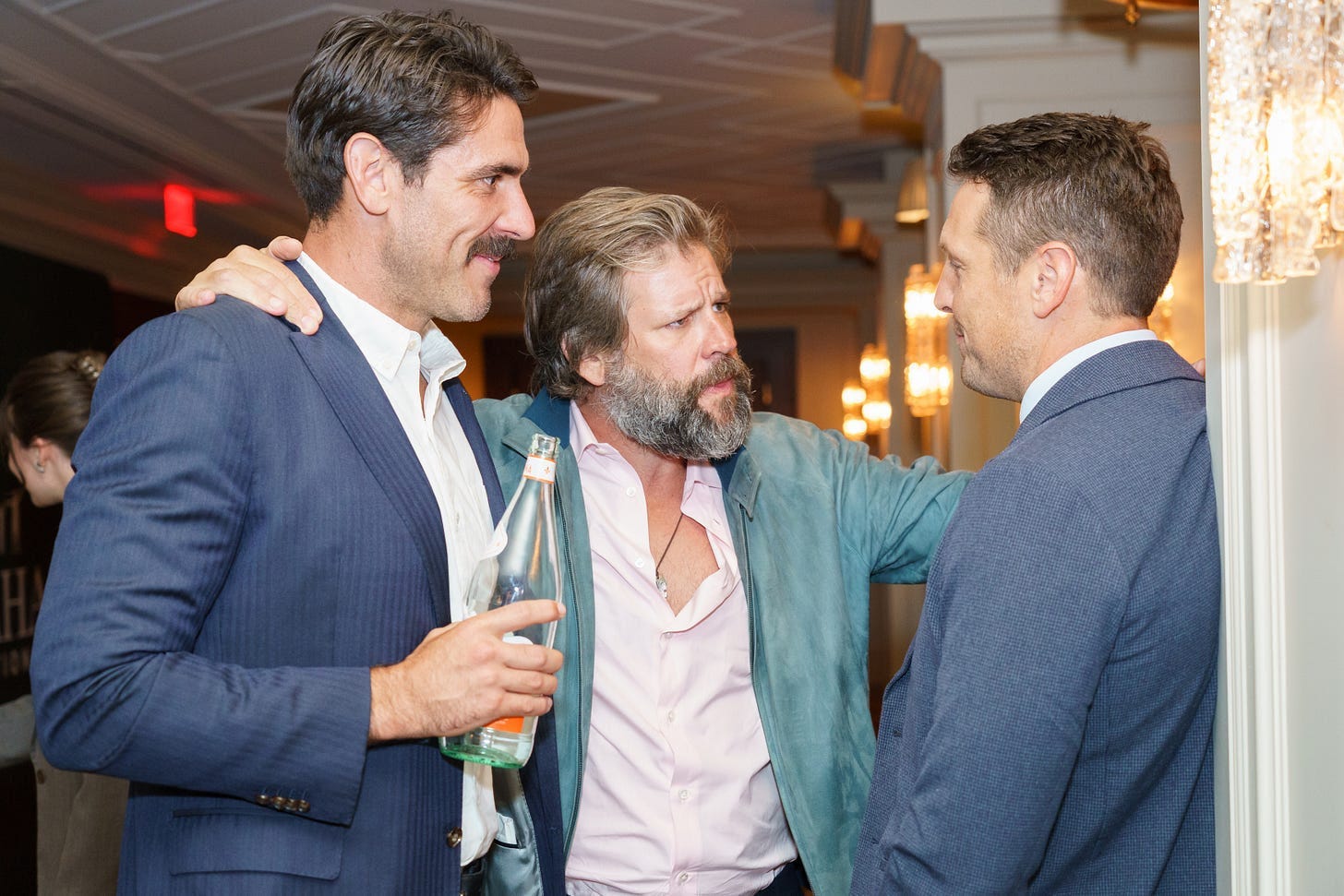
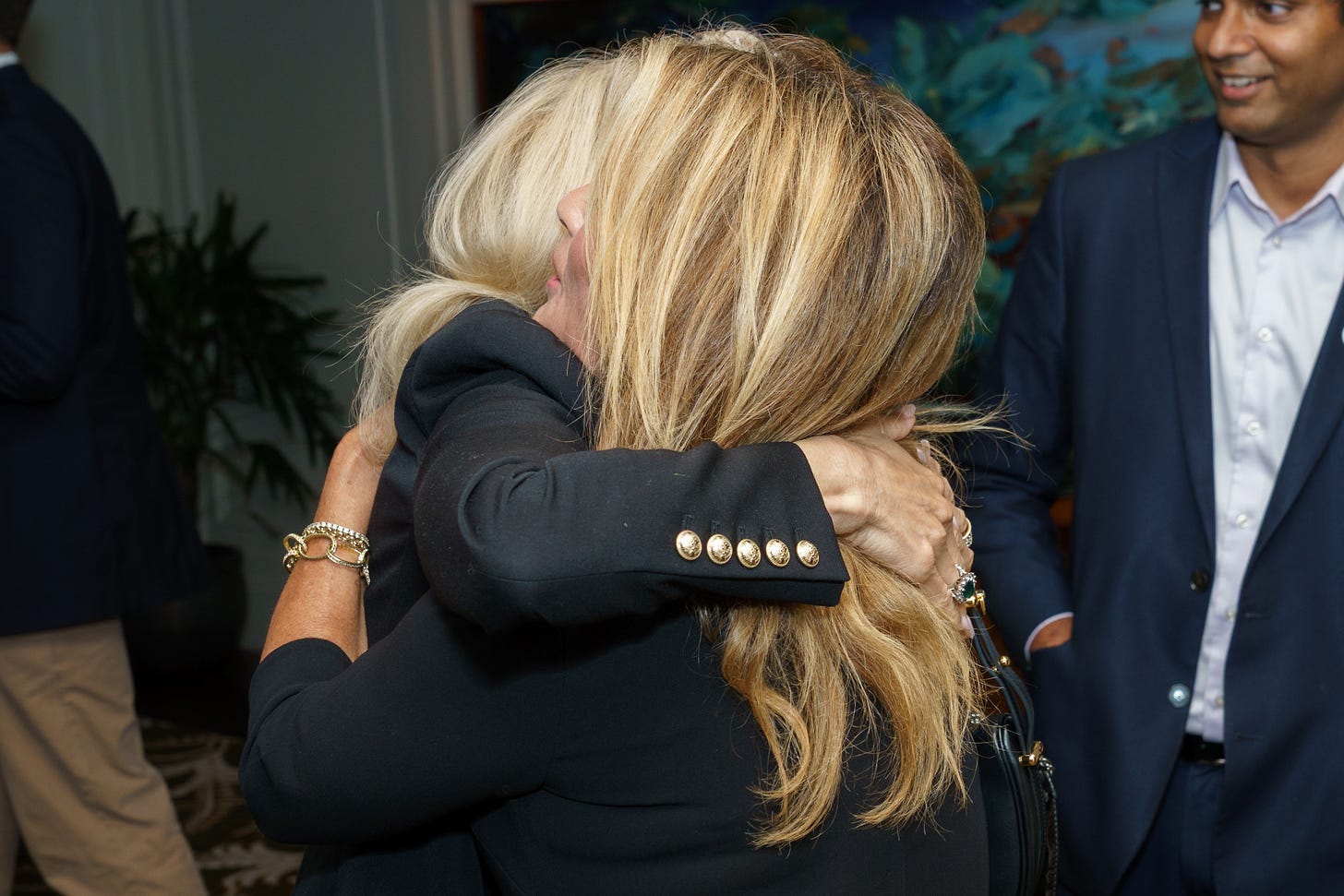
As the night wound down and the speakers were finished, guests mingled, exchanged LinkedIn accounts, and traded MAHA tips and tales.
“Did you hear that woman’s story?” a DC news anchor asked me. “The kid who went from school shooter level to normal—just from switching to organic?”
I hadn’t. But I told her I did overhear a group debating the best seed oil apps on the market (Apparently, Seed Oil Scout is the current go-to).
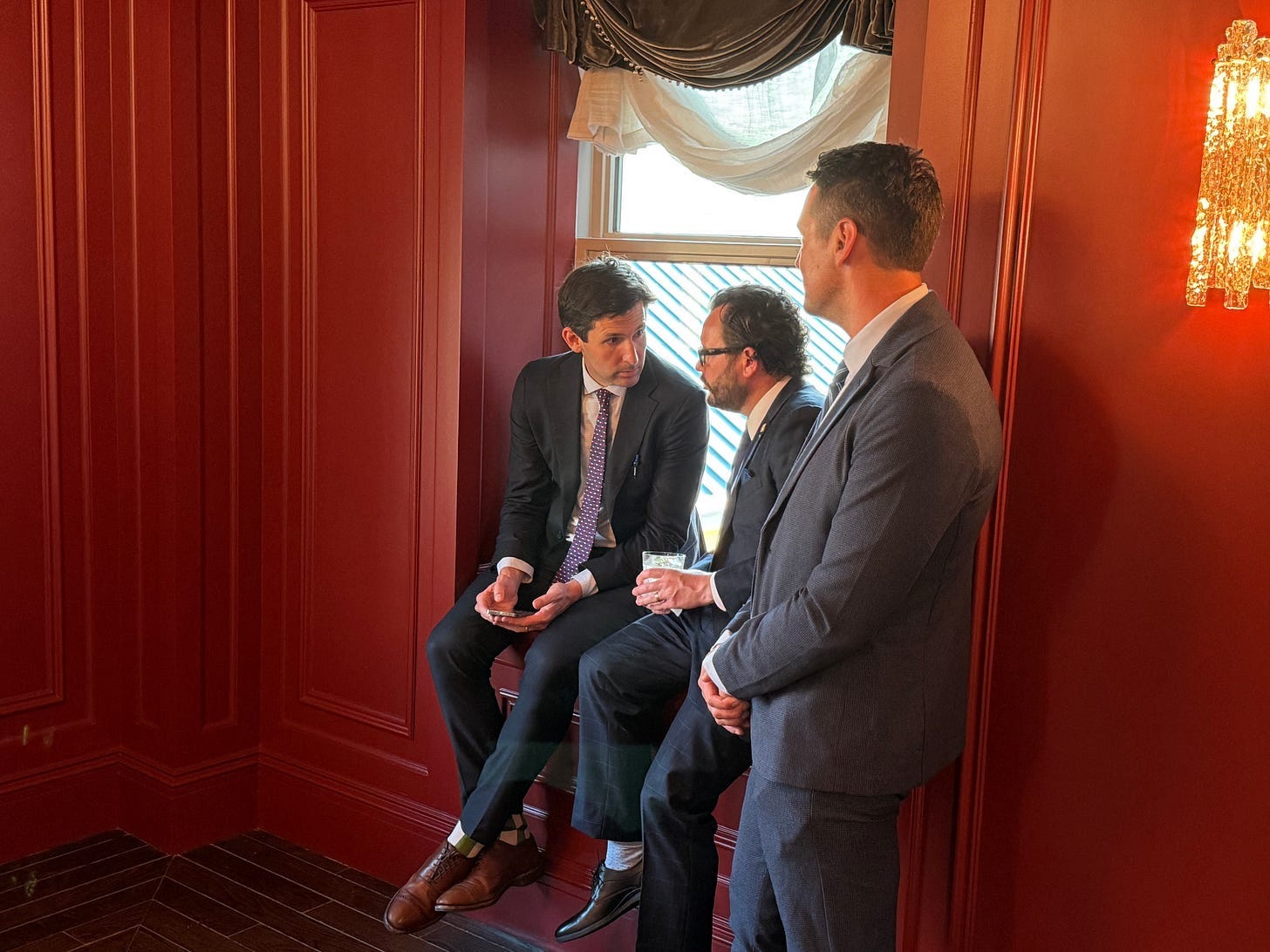
In a dark corner of the room, Calley Means was perched quietly in a windowsill.
I approached him and asked him to expand on what he meant when he said America was in the middle of a “spiritual crisis.”
“We’ve lost touch with our soil, our intuition as humans,” he said. “We’ve lost touch with the natural. We’ve been told that medical providers and scientists are our saviors when our own human intuition is more right than they are. MAHA is a recognition of the need to return to our intuition,” Means told me, confident that groups like MAHA Action could help get us back to these roots.
“MAHA Action is assembling a coalition not to drive policy change but to drive cultural and spiritual change,” Means said confidently.
As Dr. Oz was heading out the door, I caught him just in time to ask what he believes is the biggest challenge facing MAHA in office today.
He answered with one word: “Nihilism.”
It was really that simple. Simply, getting people to care.
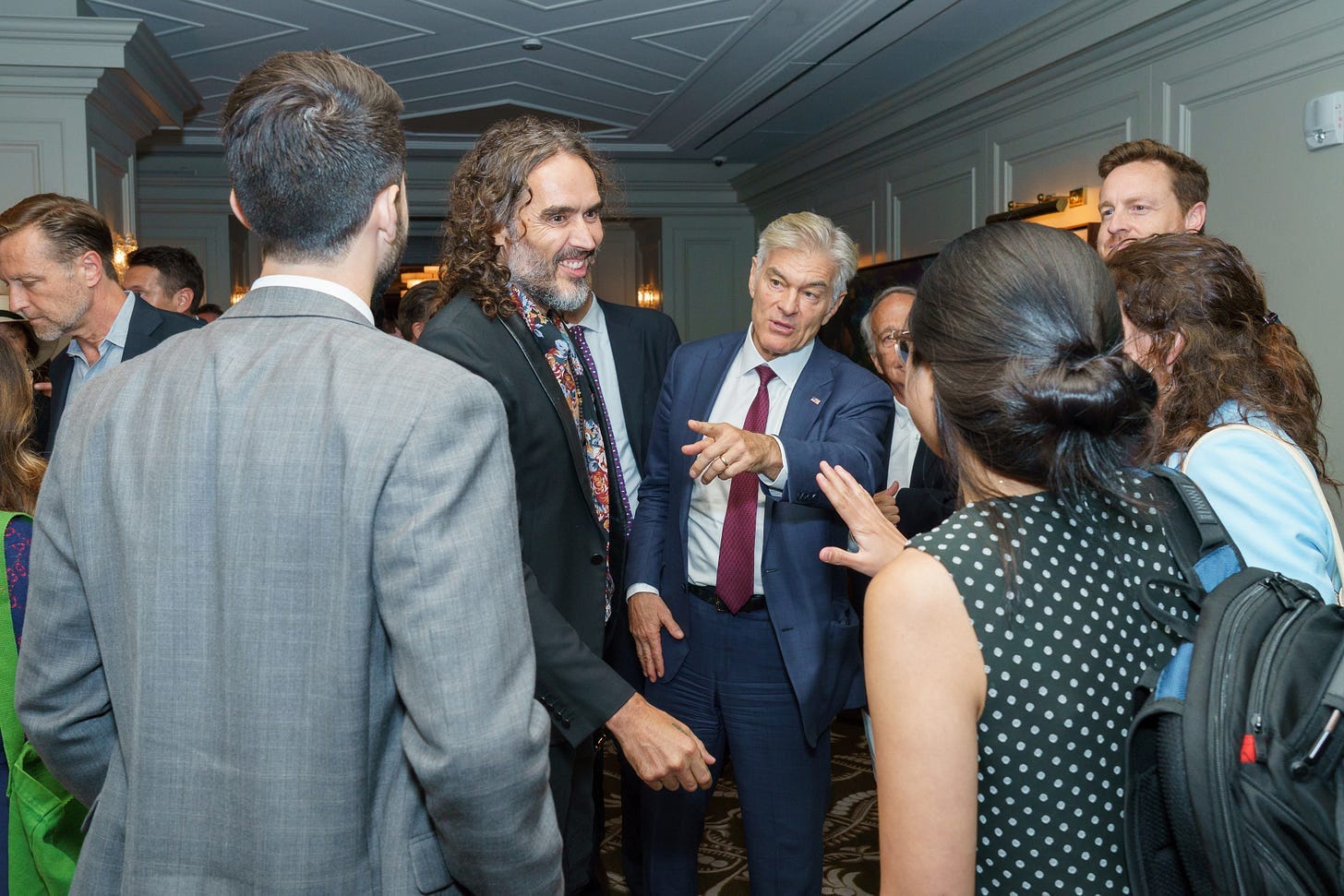
Later, I posed a question to Russell Brand—one many have quietly wondered: why does a British citizen care so much about an American health movement?
“There’s a spiritual sickness at the root of everything,” he answered, adding that his support for Bobby also drives this passion.
I asked Tony Lyons a similar question: “Why does someone like you, who’s healthy and busy, care so deeply about MAHA?”
He took a long pause and replied.
“Why doesn’t everybody care about this?”
“Children are the future of mankind,” he continued. “We have the sickest children on Earth, even though we spend three times more on healthcare.”

For a moment, it became clear: this movement isn’t just about healing the present. It’s about healing the future.
Earlier that evening, I’d heard Emily Kaplan, founder of Metfix and The Broken Science Initiative, preach a similar message.
“If I’m in a hospital bed, all I care about is being healthy. Freedom of speech, freedom of assembly—none of it matters,” Kaplan said.
Figures like Dr. Eric Berg, Leigh Merinoff, and Zenn Honeycutt clearly care about the cause—each dedicating their careers to making people healthier. But getting everyone else to care—especially those profiting from the broken system—might be just as hard as dismantling it.
Right-wing correspondent Jack Posobiec, a recognizable figure from the MAGA orbit, left me with surprising hope, declaring MAHA the most popular political movement in the country.
“MAHA is bigger than MAGA,” he said, standing beside his wife Tanya, who often posts in support of RFK Jr. on her own social media accounts.
“MAHA reaches places that MAGA can’t, hence and that’s why the alliance is so politically critical,” he explained.
Calley Means agreed, attributing the movement’s strength to the “unlikely unison” between Donald Trump and Kennedy.
“This diverse, beautiful coalition of people you would have never expected to support President Trump has come together and is impacting elections,” Means told me.
“If this coalition stays together for the next 10 years, we are going to have a radically different healthcare system and medical system,” Means said.
Change doesn’t come from legislation alone. It begins in rooms like this—where strangers clink champagne coupes, swap sob stories, and realize that maybe Gandhi was right. Maybe they are the change they wish to see in the world. And that thought alone is enough to start the MAHA revolution.
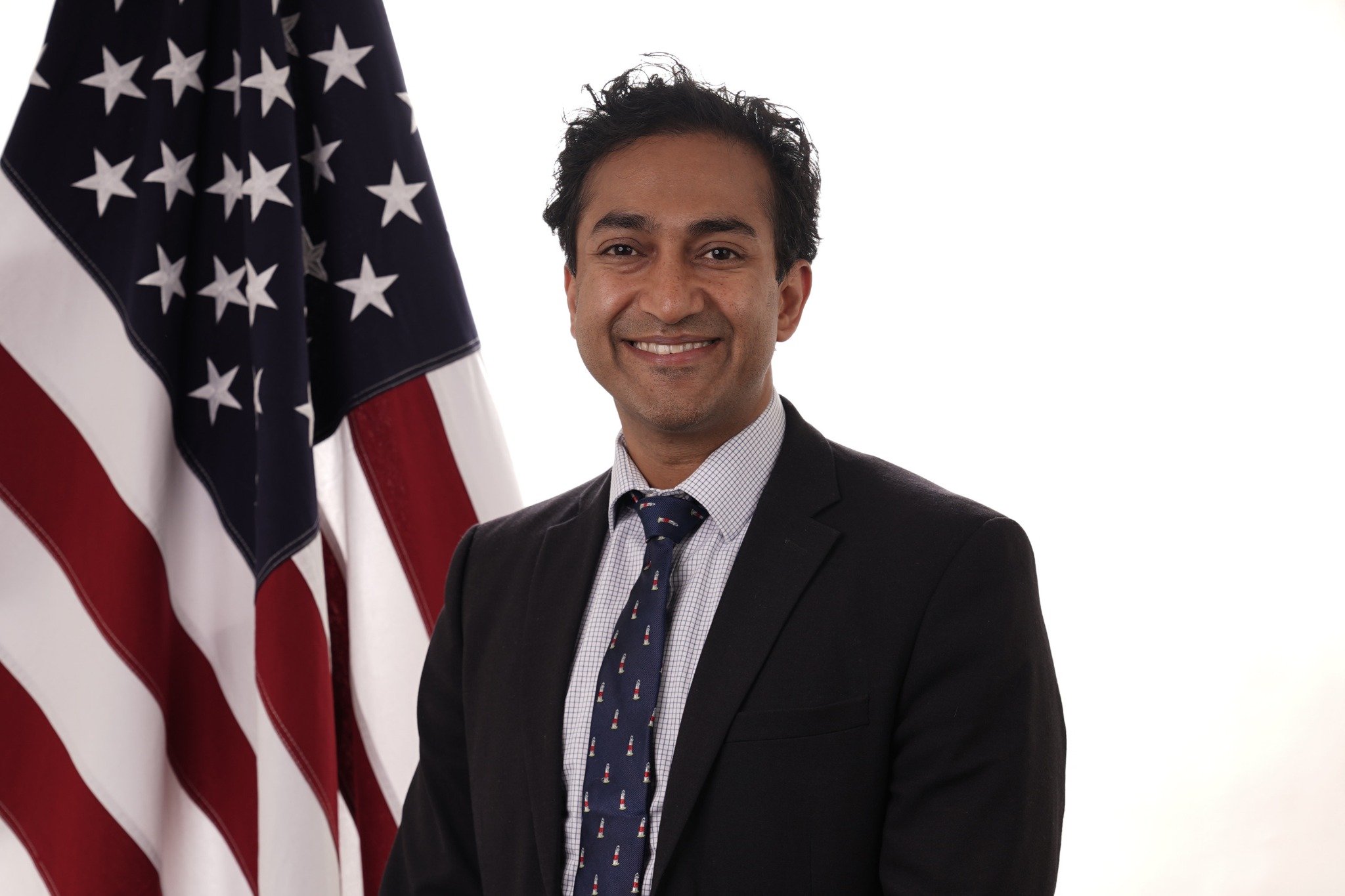
FDA Rejects Moderna Jab for Healthy Children



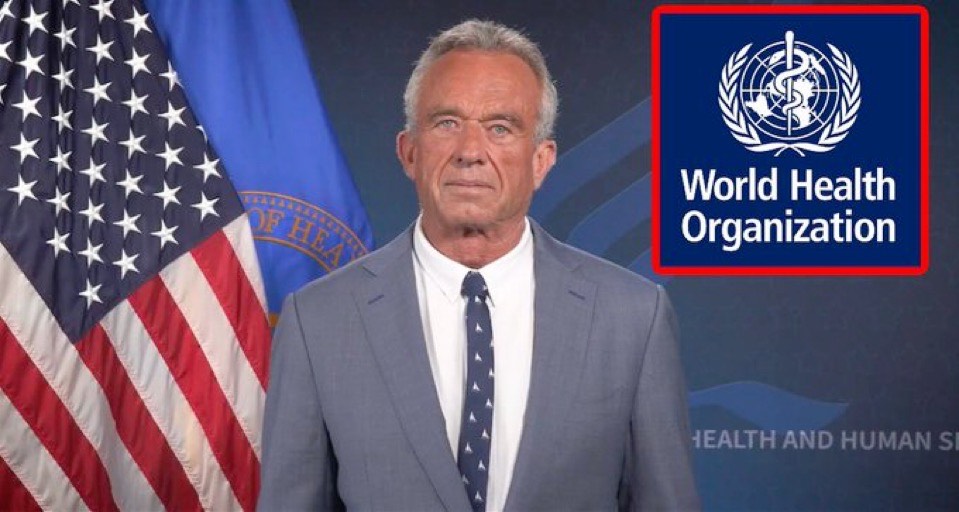
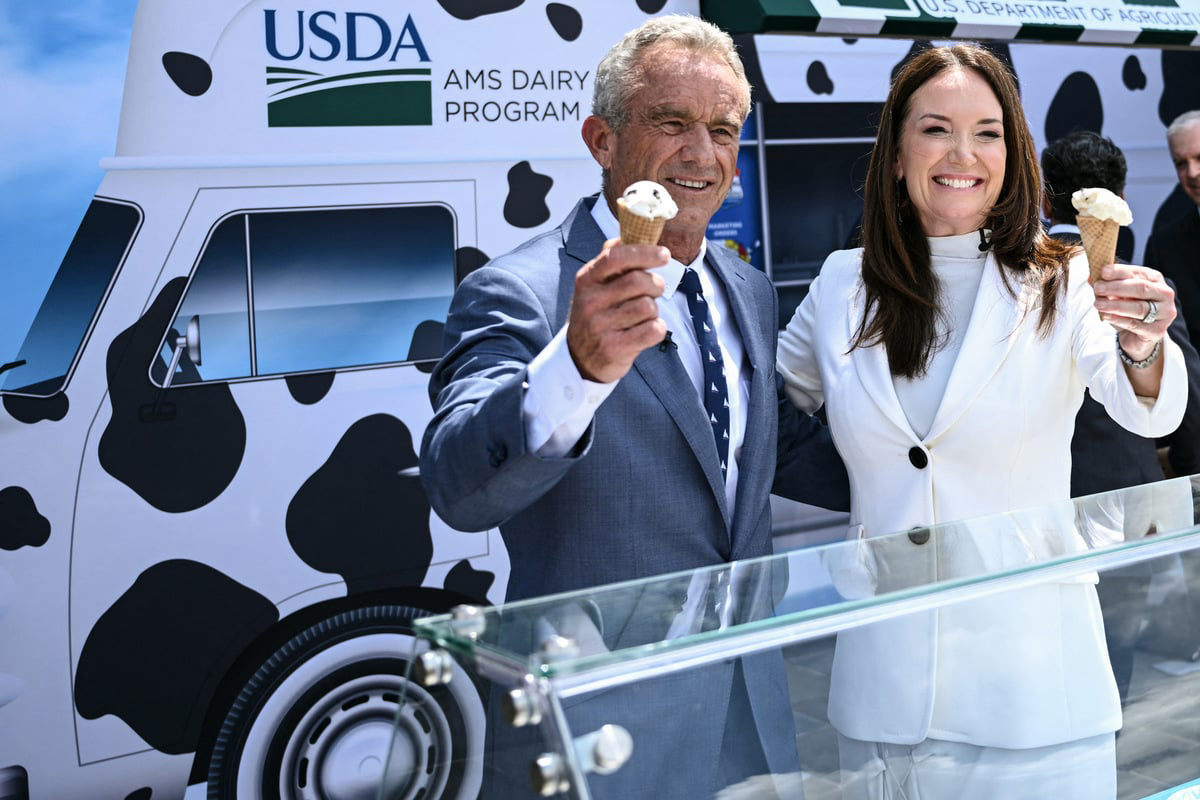
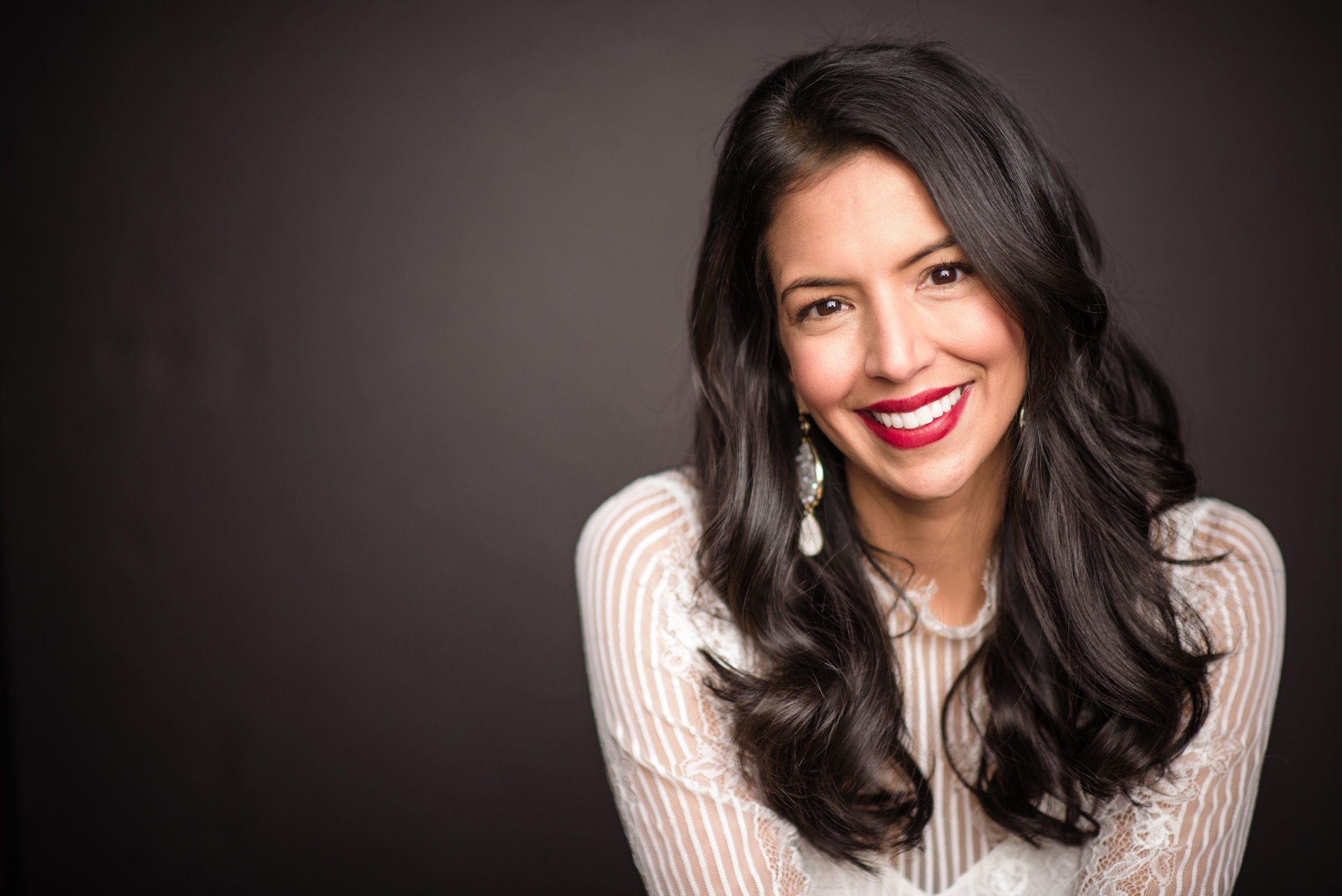

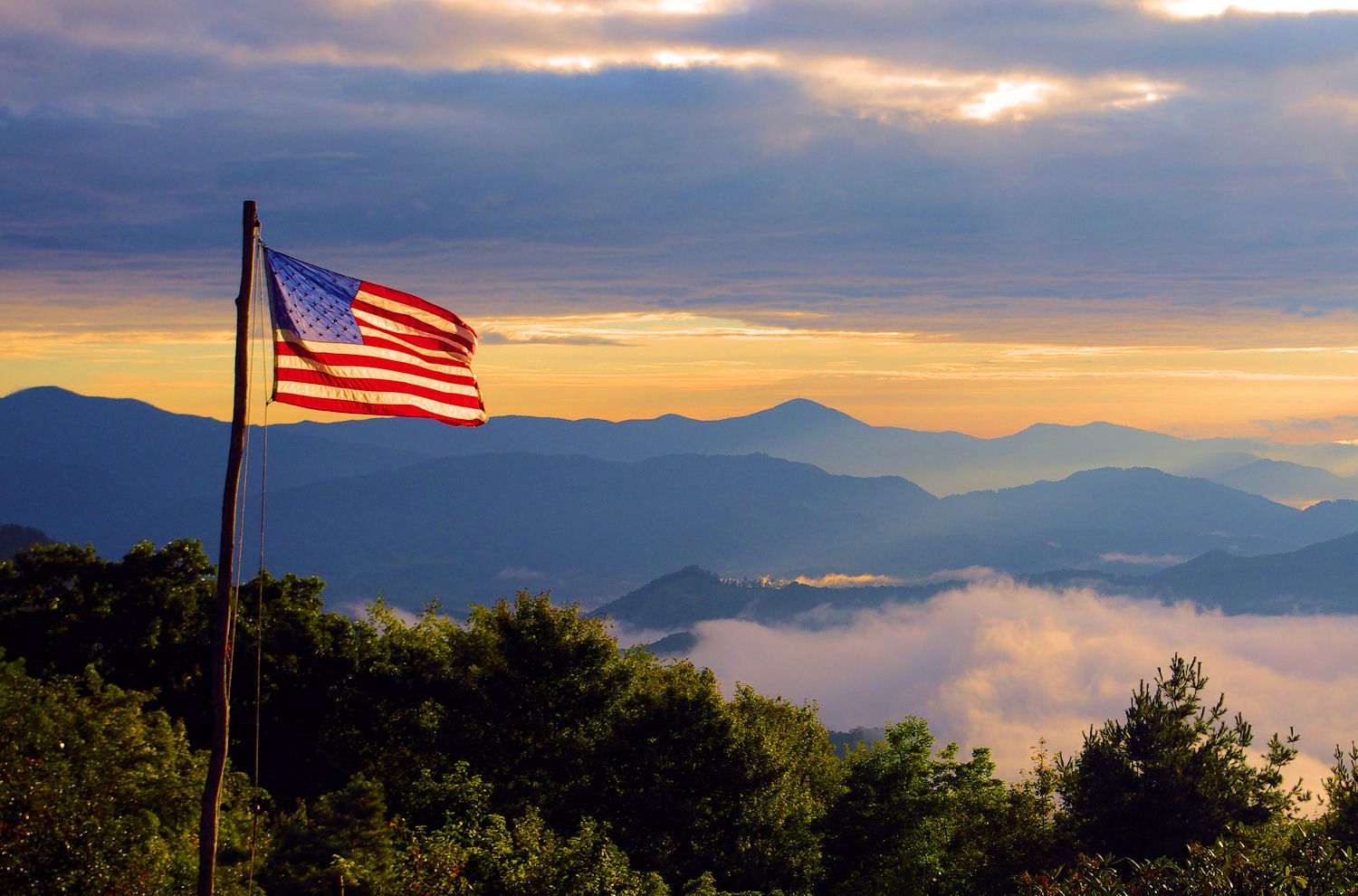
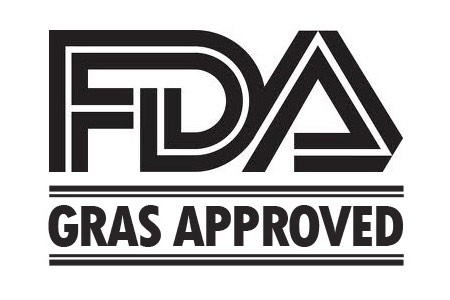

Lorem ipsum dolor sit amet, consectetur adipiscing elit. Suspendisse varius enim in eros elementum tristique. Duis cursus, mi quis viverra ornare, eros dolor interdum nulla, ut commodo diam libero vitae erat. Aenean faucibus nibh et justo cursus id rutrum lorem imperdiet. Nunc ut sem vitae risus tristique posuere.
Lorem ipsum dolor sit amet, consectetur adipiscing elit. Suspendisse varius enim in eros elementum tristique. Duis cursus, mi quis viverra ornare, eros dolor interdum nulla, ut commodo diam libero vitae erat. Aenean faucibus nibh et justo cursus id rutrum lorem imperdiet. Nunc ut sem vitae risus tristique posuere.